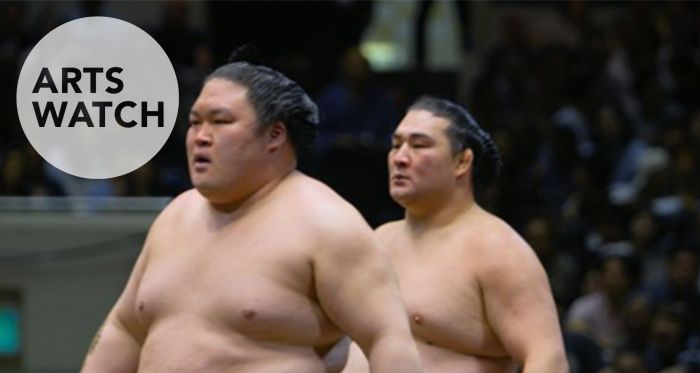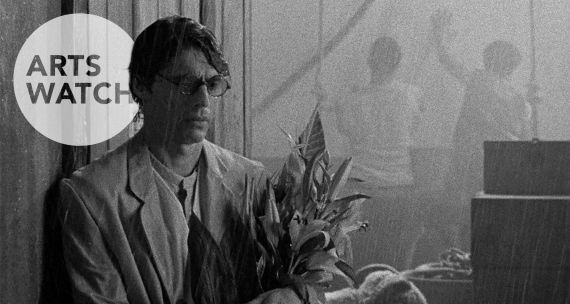Synopsis: Sumodo: The Successors of Samurai, filmmaker Eiji Sakata’s directorial debut, is a documentary that explores the enigmatic world of Japan’s national sport. It follows the rikishi (wrestlers) who choose sumo not simply as a profession, but as a way of life. The film traces two high-ranking rikishi, Gōeidō and Ryūden, and their stables (training centres) over a six-month period. It highlights key junctures in their careers as they confront life changes, injuries, and mental challenges while trying to advance within sumo’s strict hierarchical ranks.
Who are the people behind the rikishi?
Sakata’s film delves into the sport’s human side, presenting the rikishi as professional athletes engaged in continuous mental and physical training. While we see the rikishi consuming mountains of food and donning CPAP machines to combat sleep apnea, we also see the long, intense training involved in building the strength, flexibility, speed, and technique necessary to win and prevent career-ending injuries. As he struggles to recover from a torn muscle, Gōeidō comments that, “every day is a traffic accident.”
Sumo is a world steeped in traditionalism and is an exercise in “manly courage.” Sakata visits two stables where the rikishi live, eat, sleep, and train communally for most of their careers. Guided by a “stable master,” who is typically a retired rikishi, and a set of principles codifying the stable’s ethos, the rikishi live by strict moral codes whose underlying current is to “be stoic… like a true man.” In contrast, women barely feature in the film and when they do, they occupy only peripheral support roles.
Sumo then and now
Sakata draws direct connections between the history of the sport and how samurai formerly trained for battle. Piercing samurai armour with a blade required strength and skill to knock one’s opponent off-balance; the practice of honing this skill evolved over the centuries into a unique spectator sport. This blending of the past with the present is a recurring theme throughout the film.
Today, sumo remains one of Japan’s most popular spectator sports with tournaments regularly selling out. However, sumo’s future is far from certain. This year, fewer than 30 prospective wrestlers participated in the Japan Sumo Association recruiting process, compared to more than 150 candidates in the early 1990s. But while Japanese are less inclined toward careers in sumo, the number of non-Japanese rikishi is rising. Currently, two of the top three rikishi are ethnically Mongolian. In addition, living up to the sumo “pure heart” ethos seems to be increasingly challenging for new generations of rikishi. Soon after the documentary was released, one of the rikishi profiled in the film was suspended for inappropriate conduct outside of the ring.
Sumodo makes no effort to delve into the questions about the future of sumo. What it provides instead is a very personal, behind the scenes look into the everyday lives of rikishi—how and why they strive to become champions in the sport. After listening to their personal stories and their struggles to surmount obstacles and restore their ranks, even those with little interest in sumo are likely to be drawn in to this portrayal of these modern successors of the samurai.
About the JFF Theater
JFF Theater is an online streaming service provided by the Japan Foundation that distributes Japanese films and videos worldwide, with multilingual subtitles, all free of charge. The website is a platform where Japanese films and videos can be viewed anytime, anywhere and aims to reach out to international audiences, fostering connections and inspiring exchanges among Japanese film fans, both new and old alike.






